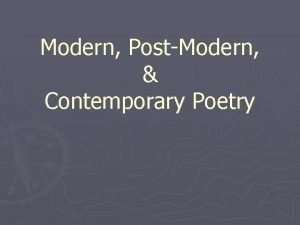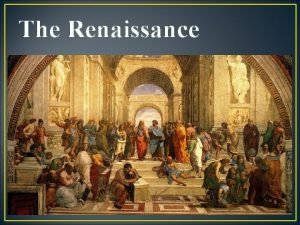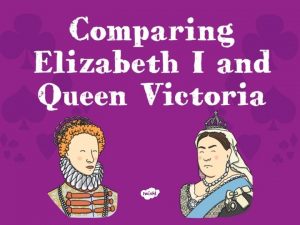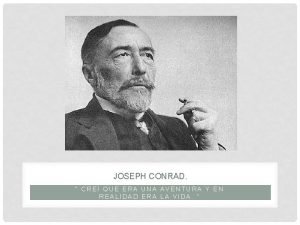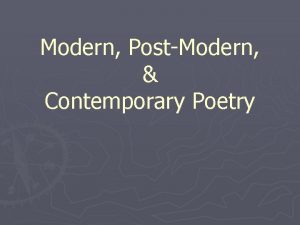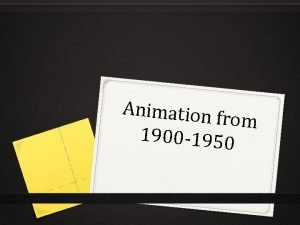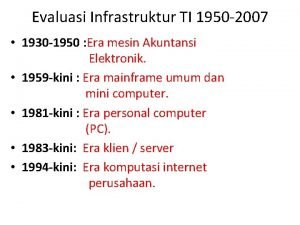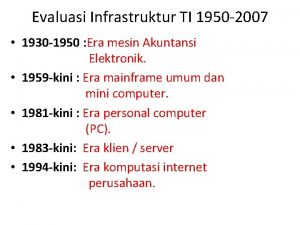The Modern Era 1900 1950 s Important Historical







- Slides: 7

The Modern Era 1900 -1950 s

Important Historical Events • • • World War I The Great Depression Prohibition The Dust Bowl Women’s right to vote (suffrage) Racial division

Other Influences • Marxism as an alternative political and • • economic philosophy The growing interest in psychoanalysis provides a new way of looking at personality and the individual All these ideas and events increases pressure on traditional beliefs and ideas

Thematic Shift • Authors move away from idealism towards cynicism • Authors begin to question authority and tradition • This is due to the facts that historical events contradict the • • traditional view of the “American Dream” (US as a New Eden, optimism, and the strength of the individual) Disillusionment As a result, the Modernist Movement called for bold experimentation and a wholesale rejection of traditional themes and styles (all arts took part)

Examples of Modernist Art • Stream of Consciousness- a new style of • • narration that abandons chronology and attempted to imitate the moment-to-moment flow of a character’s perceptions and memories School of Imagism and Symbolism- founded by Ezra Pound and T. S. Eliot, rejects content for aesthetics (style and imagery) Some poets (Robert Frost, Edgar Lee Masters, and Edward Arlington Rombinson) retain “plain language” in their poetry

Important Modernist Poets • • • Ezra Pound T. S. Eliot Edna St. Vincent Millay Robert Frost Edgar Lee Masters Edward Arlington Robinson

Important Writers • Expatriates (often called the Lost Generation)- • • • due to disillusionment, Prohibition, and cheap post-WWI European life, many writers leave America and write about US life in exile This included the following writers: Ernest Hemingway Sinclair Lewis F. Scott Fitzgerald Gertrude Stein
